Equal opportunity – the journey to acceptance through self-employment
Idpd-case-studies, Stories | November 15, 2023
People with disabilities, represent the most disadvantaged and marginalised group within any society, and can be even further marginalised because of their gender, ethnicity, or age.
Disability is nuanced and can itself be the basis of discrimination. For people with psychosocial disabilities, like 58-year-old Sugeng from Indonesia, their journey to inclusion can be even more difficult. Their disabilities are commonly misunderstood, or not ‘believed’, and can sadly lead to discrimination within disabled communities themselves.
“People often underestimate people with psychosocial disability because the disability is invisible,” said Sugeng.
“My hope is that we are not excluded and underestimated because our disability is invisible.”
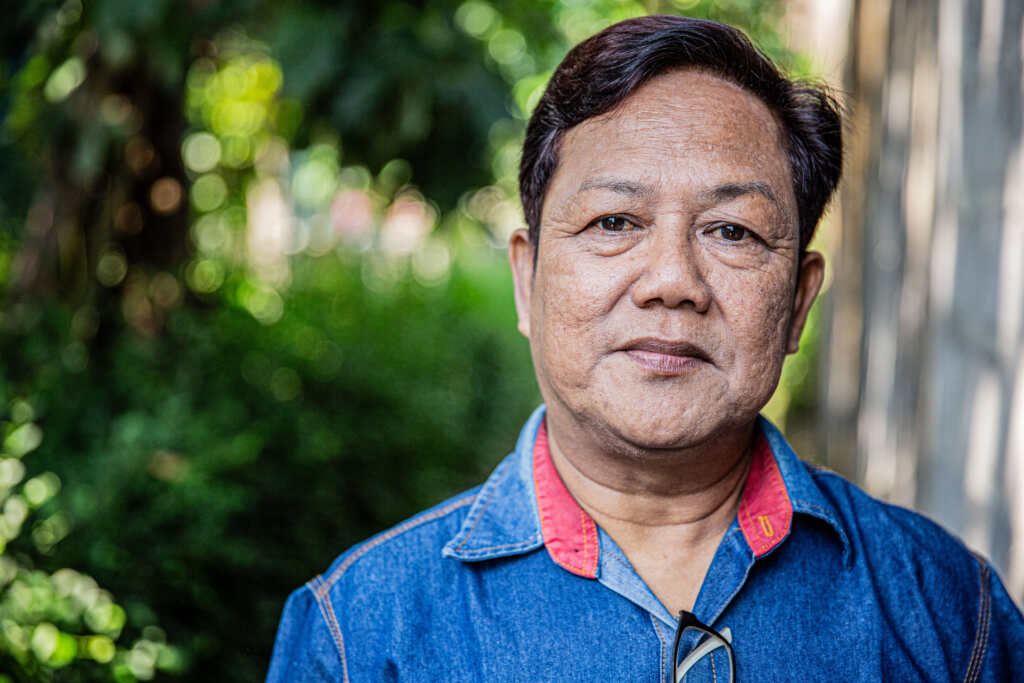
Over the past decade, there has been gradual progress on eliminating barriers to inclusion has been gradually improving. Countries like Australia are putting greater focus on eliminating barriers to inclusion for people with disabilities through addressing the pre-conditions to inclusion, and establishing support structures that reflect the priorities of people with disabilities.
However, in 2020, the COVID-19 pandemic spread across the globe, causing immeasurable suffering, costing countless numbers of people their lives and livelihoods, and forcing millions of people into poverty.
Coupled with the worsening climate and cost of living crises, these negative impacts will have long-lasting effects on health and employment and are driving extreme poverty for the first time in decades.
These crises have set back the progress made toward improving the lives of people with disabilities, who are at even greater disadvantage as a result of them.
Sugeng is a small business owner who overcame adversity and, as so many of us did, sought a different career path after the pandemic.
“Because the rent price went up and then the COVID hit, I started to think to open my own salon,” said Sugeng. “I started up this by saving some money to buy hairdressing accessories.”
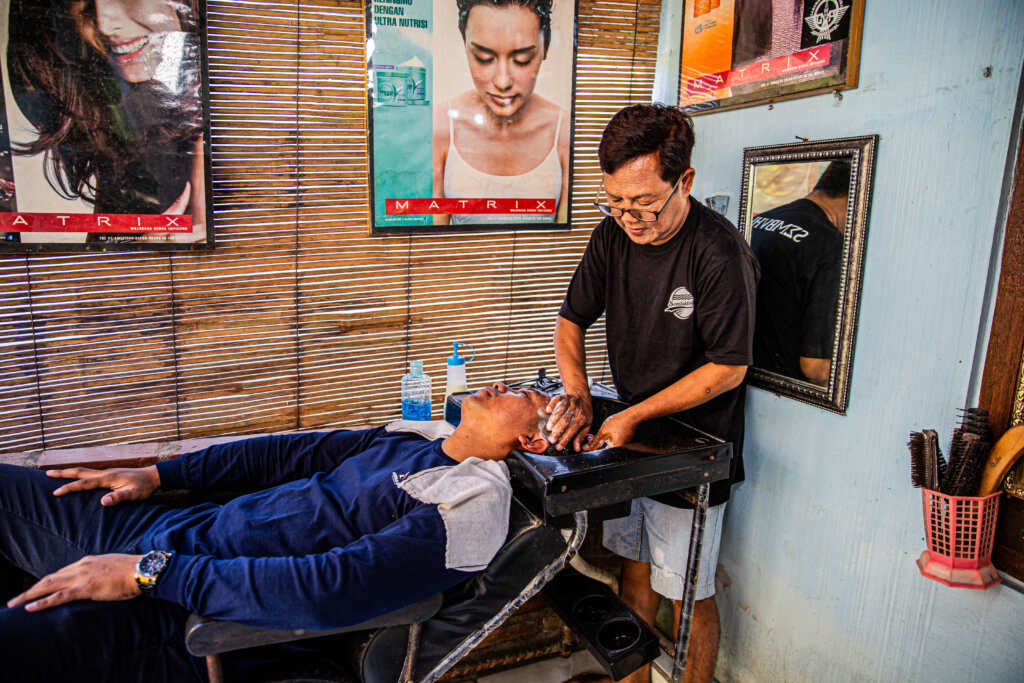
“I built this salon so that I can erase the negative thoughts I have and give me more positive things to do and empower me to do more.”
Indonesia is a country steeped in religion and tradition, with set expectations on the roles men and women play in society. Sugeng’s job as a hairdresser is a-typical, and outside the gender norm. However, far from shunning Sugeng for his career choice, his community has embraced him.
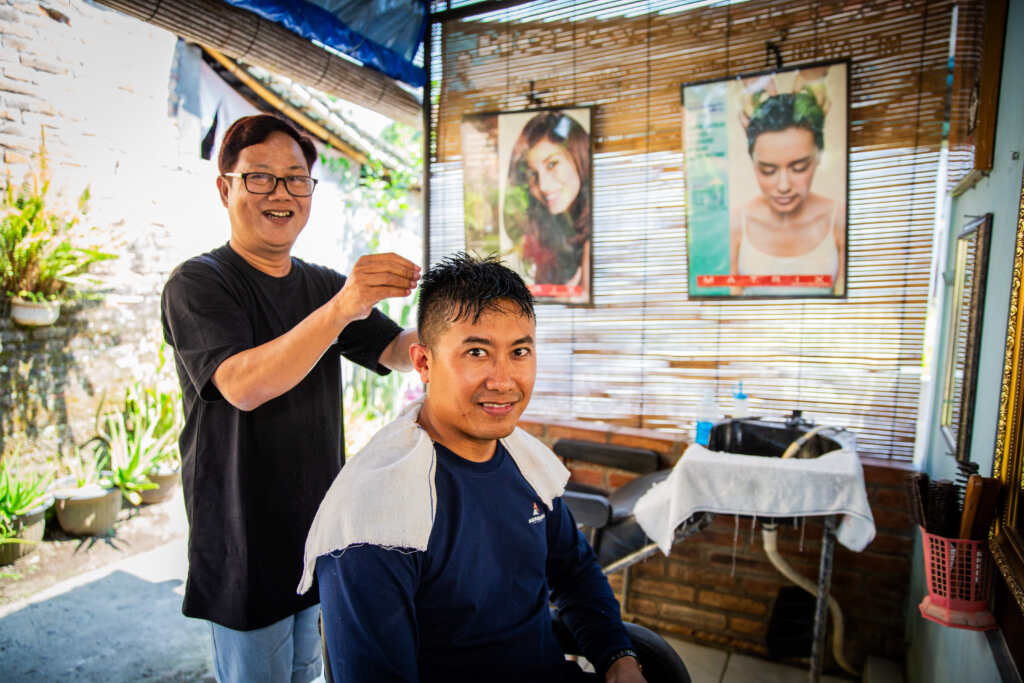
“As a male hairdresser, I don’t feel excluded from the society. In fact, many of my customers choose me as their hairdresser because they feel like I do the job neater and better.
Moreover, I feel empowered because of the support that society give me for having my own salon.”
People with disabilities are the experts in their own lives, needs and capabilities. When the pre-conditions for inclusion are met – including non-discrimination and community inclusion – then people with disabilties, like Sugeng, are able to participate on an equal basis with others, and to thrive.
“From having my own salon, I feel like I can help my family in terms of financial, and I can also socialise better. I feel like I can be beneficial to my community.”
This case study was written for International Day of People with Disabilities 2023. Read our other case studies on how preconditions for inclusion changed the life of one young man in Fiji, disability and female leadership in Indonesia, and disability and the climate crisis.
https://www.cbm.org.au/stories/equity-equal-opportunity-the-journey-to-acceptance-through-self-employment
Related Stories

Building inclusive, climate resilient communities in Bangladesh
Highlights from DFAT Post’s visit In January 2026, representatives from the Australian High Commission in...
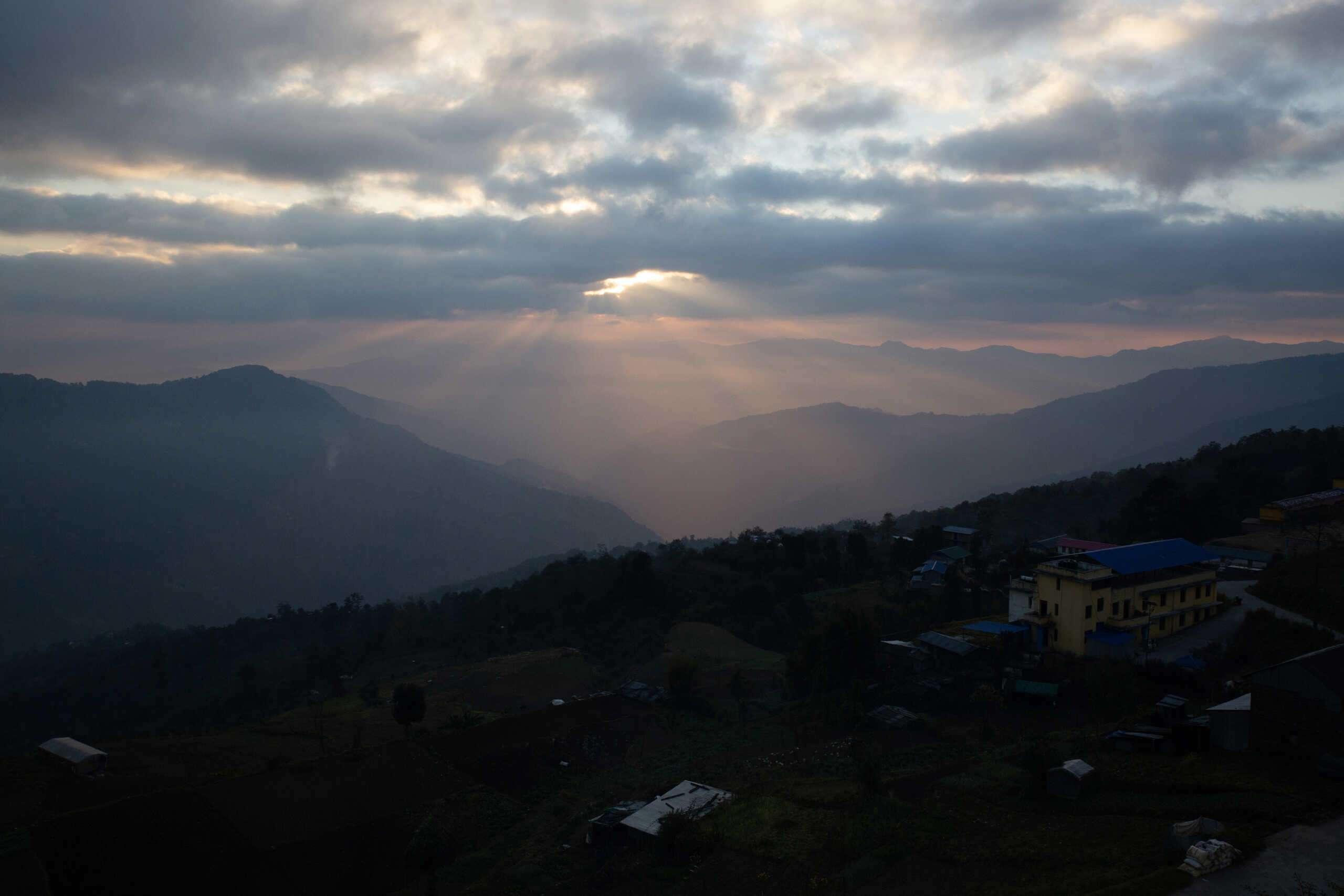
Week 1 – Lent series 2026
As we enter the season of Lent, we’re taking time as a community to pause, reflect, and draw closer to the heart of God. Lent invites...
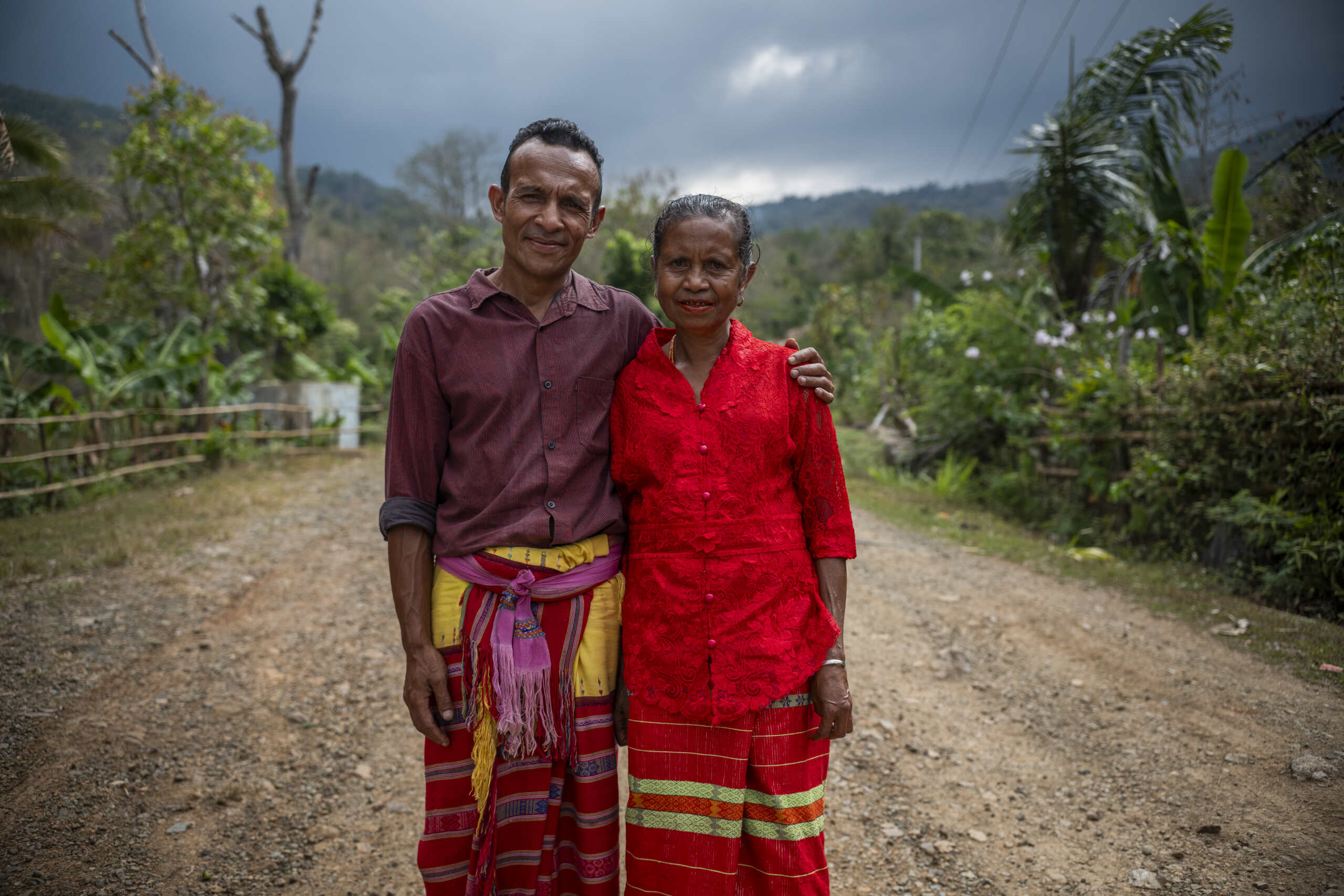
How CBM is making a difference in Indonesia
For more than 45 years, CBM Global has been working alongside communities in Indonesia to ensure people with disabilities...
